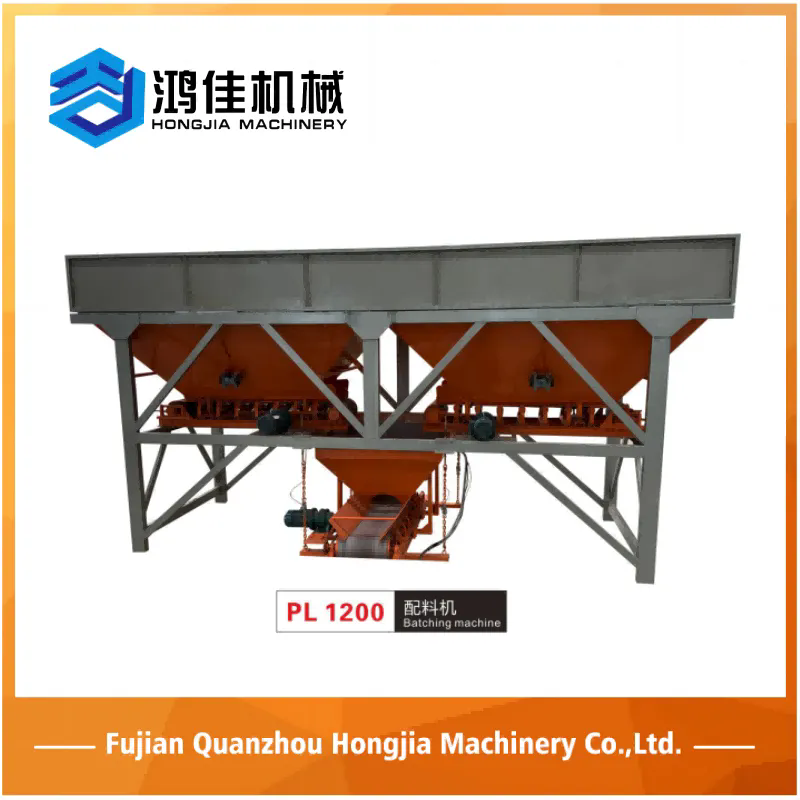Why Is the Hydraulic Block Forming Machine Revolutionizing the Construction Industry?
2024-11-08
The construction industry is constantly evolving, with new technologies and machines emerging to improve efficiency, reduce labor costs, and ensure higher-quality results. One such innovation making waves is the hydraulic block forming machine. This machine is transforming the way construction materials are produced, particularly in the manufacturing of concrete blocks and paving stones. But why is the hydraulic block forming machine gaining so much popularity in the construction world? Let’s explore its advantages and the reasons behind its increasing use in modern construction processes.
What Is a Hydraulic Block Forming Machine?
A hydraulic block forming machine is a highly specialized piece of equipment used for producing concrete blocks, paving stones, and other similar products. These machines use hydraulic pressure to compact a mixture of cement, sand, and other aggregates into molds, forming solid, durable blocks used in construction.
The hydraulic system provides the necessary pressure to ensure the blocks are compressed to the desired strength, resulting in high-quality products that are uniform in size and texture. These machines are capable of producing a wide range of concrete products, including solid and hollow blocks, curbstones, and interlocking pavers, with various shapes and sizes depending on the molds used.
Why Is the Hydraulic Block Forming Machine Gaining Popularity?
1. Enhanced Production Efficiency
One of the key reasons hydraulic block forming machines are becoming so popular is their efficiency. Traditional methods of block production often rely on manual labor or less efficient machinery, resulting in longer production times and inconsistent quality. Hydraulic machines, on the other hand, can produce large quantities of concrete blocks quickly and efficiently, significantly increasing production rates. Automated systems help to streamline the entire process, from mixing the concrete to molding and curing, ensuring that production continues without delays.
2. High-Quality and Consistent Products
Hydraulic pressure allows for the precise control of block formation, ensuring that each block produced meets the required strength and uniformity standards. The consistency in size, shape, and density of the blocks is crucial for construction projects where quality control is essential. Since hydraulic systems exert a more even and controlled pressure during the formation process, the blocks are more durable and of higher quality than those produced by manual methods or other less advanced machines.
3. Flexibility in Product Design
Another reason for the growing popularity of hydraulic block forming machines is their versatility. These machines come with interchangeable molds that can produce a variety of shapes and sizes of blocks. Whether it's solid or hollow blocks, paving stones, or decorative bricks, the hydraulic block forming machine can cater to diverse needs in the construction industry. The ability to easily switch between molds makes it easier for manufacturers to meet different market demands and tailor products to specific customer requirements.
4. Cost-Effectiveness and Reduced Labor Costs
Hydraulic block forming machines offer a more cost-effective solution for block production than traditional methods. By automating much of the production process, these machines require less manual labor, reducing labor costs significantly. Furthermore, because they can produce high-quality blocks at a faster rate, businesses can achieve a higher return on investment (ROI). The efficiency of the machine reduces the need for excess raw materials due to less waste, helping businesses save money on materials as well.
5. Energy Efficiency
Hydraulic block forming machines are also known for their energy efficiency. Unlike other machines that rely heavily on electricity or fuel, hydraulic machines utilize the power of hydraulic pressure, which tends to be more energy-efficient. This makes the machines not only more environmentally friendly but also more economical in the long term, as businesses can save on energy costs.
6. Durability and Long Lifespan
Hydraulic block forming machines are built to last, with high-quality materials used to construct the machine's components. These machines are designed for heavy-duty use and can withstand years of operation with proper maintenance. Since they are able to operate continuously without significant wear and tear, businesses can rely on these machines for long-term, high-volume production without worrying about frequent repairs or replacements.
7. Environmental Benefits
The construction industry has been under increasing pressure to adopt more sustainable practices, and hydraulic block forming machines are contributing to these efforts. By reducing waste, optimizing material usage, and enhancing energy efficiency, these machines help minimize the environmental impact of block production. Furthermore, many of the machines are designed to work with eco-friendly materials, such as recycled aggregates, which can be incorporated into the concrete mix to reduce the carbon footprint of construction materials.
8. Easy Maintenance and Operation
Hydraulic block forming machines are designed to be user-friendly, with simple controls that make them accessible to operators with basic training. Many modern models also feature automatic systems that help reduce the likelihood of human error and improve overall operational efficiency. Maintenance is typically straightforward, with manufacturers providing regular updates, parts, and support services to ensure that the machines continue to run smoothly over time.
Applications of Hydraulic Block Forming Machines
Hydraulic block forming machines are widely used in various sectors of the construction industry. Some of their common applications include:
- Residential Construction: These machines are used to produce concrete blocks for building homes, walls, and other structural elements.
- Paving and Road Construction: Hydraulic block forming machines are commonly used to create interlocking pavers and curbstones for roads, walkways, and driveways.
- Landscaping: For landscaping projects, the machines produce decorative blocks and stones that can be used for garden paths, retaining walls, and other outdoor features.
- Industrial and Commercial Buildings: In larger construction projects, these machines are used to produce blocks and paving stones for industrial buildings, factories, and commercial complexes.
- Infrastructure Projects: The machines are also used in producing blocks for infrastructural elements like bridges, tunnels, and dams.
Conclusion
The hydraulic block forming machine has become a game-changer in the construction industry, offering enhanced efficiency, high-quality products, flexibility, and cost savings. As demand for durable and customizable concrete products continues to rise, these machines provide an innovative and sustainable solution that meets the needs of the modern construction market.
Whether you're a construction company looking to increase production, reduce labor costs, or improve the quality of your blocks, a hydraulic block forming machine is a valuable investment that can help propel your business to new heights. With their versatility, durability, and environmental benefits, it’s no wonder that hydraulic block forming machines are rapidly becoming the go-to choice for block production worldwide.



